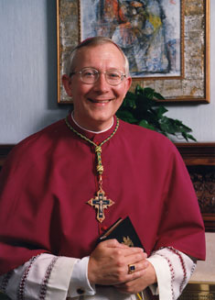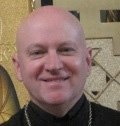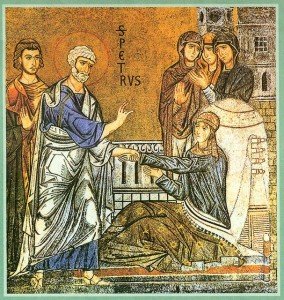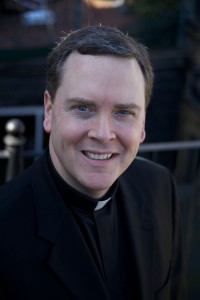 Lots of attention has been given these past weeks to the spending habits of the bishop of Limburg, The Most Reverend Franz-Peter Tebartz-van Elst, 52, known in the secular media as “Bishop Bling-Bling.”
Lots of attention has been given these past weeks to the spending habits of the bishop of Limburg, The Most Reverend Franz-Peter Tebartz-van Elst, 52, known in the secular media as “Bishop Bling-Bling.”
Some people think that the case of “Tebartz-van Elst is just the tip of the iceberg,” said Christian Weisner, spokesman for the German branch of We Are Church, an organization advocating Catholic church reform. “There is a real clash of cultures between Germany’s current cardinals and bishops –nominated under John Paul II or Benedict XVI — and Pope Francis.”
I don’t follow the organization “We are Church” but I am guessing it is a public lobby that is loosely Catholic and focussed on the misdeeds of Catholic Clergy. I don’t subscribe to lobby groups; and, I don’t think these groups are but a very thin veil leading the faithful to dissent. But, it seems that Mr Weisner is correct; but I don’t think for the same reasons as Weisner thinks. The agenda of Weisner and We are Church is not too coherent with Church teaching and tradition. Weisner speaks of the culture wars faithful Catholics have to face. But I have to wonder if this controversy is really born in the fact that there is a divide between orthodox and unorthodox Catholics and that some of the teachings of Tebartz-van Elst contradicted those of past bishops? It is entirely possible some members of the Church in the Limburg Diocese are pushing some of these things in way to be anti-Benedict XVI.
What can said of the Limburg bishop is possible for all of us. No one is exempt from mistakes. AND yet we ought not be self-righteous to think that this matter pertains to other people. I am not gloating over the imprudence of Bishop Tebartz-van Elst. Demonizing the bishop is unbecoming of Christians. Mercy is what is required here as we are taught today by Pope Francis. We always forgive our brother.
This begs us to ask what is the responsibility of a bishop of the Catholic Church. The responsibility of the bishop is the discernment of what we are saying about God, about our Christian life, about our sanctification, our conversion, about the encounter with the person of Jesus Christ. Christianity is not about social conformity, it is not about social acceptability. The bishop’s responsibility, hence, is to lead the faithful to perfect communion with the Holy Trinity through good witness.
As a friend once said, we go to a baker because we want an appetizing, something delicious. We know that baked goods are not to be poisonous, they are to be delicious, and they are to have a particular deliciousness. Applied to the vocation of a bishop, we would say the vocation of the “profession” determines the responsibility: a bishop’s responsibility is stir our awareness and desires for God. We want to be with God.
How we understand what happened is crucial. The other day Pope Francis exercised his pastoral authority in determining that the Church universal needs a clear judgement on the activities of the Limburg bishop. Pope Francis gave a temporary dispensation from the bishop’s obligation of residence (Cf. Canon Law, 395). Moreover, His Holiness appointed a new vicar general for the good the faithful who will act in the place of the bishop who will be living outside his diocese until Providence provides otherwise. The hope is that this decision will allow for time for the commission to collect and evaluate the data plus it will allow contention to diminish a bit.
Let it be said that the bishop is not suspended as the secular and some Catholic media outlets have reported. In cases like the Limburg case, the bishop is often asked to resign voluntarily or to take a leave. No actual decree of suspension was drawn up. By the Pope’s wisdom the bishop has a leave of absence. There is a difference.
Mercy also requires justice. The matter of the bishop’s conduct needs a principle of good governance that is expressed in the Code of Canon Law, canon 1389, §1, which states:
A person who abuses an ecclesiastical power or function is to be punished according to the gravity of the act or omission, not excluding privation of office, unless a law or precept has already established the penalty for this abuse.
What needs to be determined are the facts, the points of abuse of the bishop. So, the bishop of Rome as the supreme legislator and guarantor acted according to his office when he assisted the German bishops to do their job in fraternal correction and to aid the conversion of all, including the bishop. The Code of Canon Law states,
The bishop of the Roman Church, in whom continues the office given by the Lord uniquely to Peter, the first of the Apostles, and to be transmitted to his successors, is the head of the college of bishops, the Vicar of Christ, and pastor of the universal Church on earth. By virtue of his office he possesses supreme, full, immediate, and universal ordinary in the Church, which he is always able to exercise freely (canon 331).
Catholics know deeply that the Church founded by Christ is NOT a democracy, she is not a dictatorship, the Church does not work from a gesture of sentimental, nor is she the Inquisition. The Church is a sacrament given to us by the Lord. The Church is a guided companionship. She discloses a person, a Divine Person, that is, our Lord and Savior.
What’s at stake is the relational nature of all this? As Pope Francis said to Eugenio Scalfari, “Truth according to the Christian faith, is the love of God for us in Jesus Christ. Therefore, truth is relationship.” We know this to mean that “all this [talk of relationship with Christ] throws me wide open to expecting the Mystery will show Himself….” Jesus entered history to educate us something new. That something new is ourselves as a new creation. Any lack herein of a true relationship with Truth will set us back. And, this may have happened in Limburg: the lack of memory of the Lord.
Having said this, what does Limburg indicate? A multi-million euro building project with a $20,000 bathtub and $482,000 walk-in closets is over-the-top. But Limburg’s bishop is not alone in mis-using money; we have a track record of bishops leaving a diocese in debt by millions of dollars. A good example in the USA is a former bishop of Bridgeport (now he’s administering another diocese) and several other bishops and priests who live in ways wholly inconsistent with their office and responsibility. Bishops now long dead were financially irresponsible with other people’s money leaving their successors to pay off the debt. One can think of good examples in the bishops of Boston and New York. In more recent years bishops like those of Boston, Philadelphia, Pittsburgh to name a few, have all given up grand homes and luxury items favor of more modest living.
The Church, in her wisdom, has taught and asked priests to live simply, even frugally. This is not new news. Just read the Fathers of the Church and the Magisterium on priestly life. Mother Church in her good example has taught that beauty and well-made items reflect the truth of the Incarnation and the dignity of the craftsman; being cheap and stingy are not virtues nor ought they be made such. We are required to be generous to others but not to the point of excess. Beautiful art, vesture, music, words, buildings all communicate the Divine Majesty. Poor and wealth people need beauty. History tells us this fact. Beauty reveals truth.
We ought to recall and confront the argument given by secular priests that they don’t have a vow of poverty as the religious profess. While technically true, simplicity is an objective truth and manner of living that helps all people to conform themselves to Christ crucified and risen. Diocesan priests ought to remember this is clear and consistent teaching of the popes.
Lots of people interpret Pope Francis to say that the Church has to be poor but I think interpreting Francis strictly in terms of finances is superficial. Surely he does mean that we need to be mindful of how use money for ministerial purposes and not self promotion; a Church that is poor is one that is dependent spiritually and affectively (and even materially) on Jesus Christ who gives all things for the good.
Clergymen who live luxuriously are unseemly, even giving scandal, to those who are weak of faith, to Church benefactors who their resources for the Church’s good works of mercy, education and charity. This is not only a matter concerning the Church in Germany but the Church in every place and time. Germany is in the spotlight because too many of the prelates there drive high end cars like Archbishop Robert Zollitsch who has a BMW 740d. “To me that car is not a status symbol; it is the office I use when I am traveling,” Zollitsch said at a press conference. What Zollitsch is doing is defending the indefensible.
We need to learn from this case; we need to pray for our own conversion because this is not only a matter for Bishop Tebartz-van Elst or Archbishop Zollitsch but for all of us. Being self-righteous about this matter is unhelpful and not Christian. What and how they live ought to be a point for our own conformity to the cross. The entire Christian Church is called to live simply for the sake of the Kingdom.
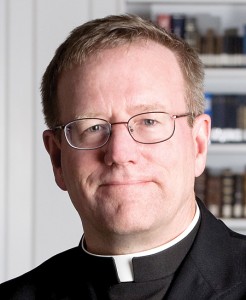 In a 55 minute presentation Father Robert Barron takes a keen review and analysis of Gaudium et Spes for the 5oth anniversary of Vatican II.
In a 55 minute presentation Father Robert Barron takes a keen review and analysis of Gaudium et Spes for the 5oth anniversary of Vatican II.
